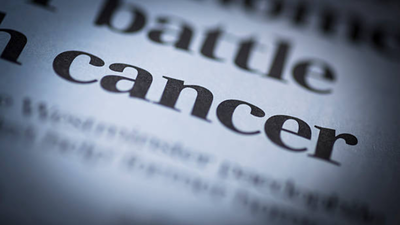Health
Experts Address Rising Cancer Rates Linked to Lifestyle Changes in India

India is witnessing a troubling increase in cancer cases, attributed largely to changing lifestyles, environmental factors, and inadequate healthcare access. Oncologists, including Dr. Gopal Sharma, Vice Chairman of Medical Oncology at Max Super Speciality Hospital, and Dr. Rakesh Kumar Agarwal, Senior Consultant and Head of Radiation Oncology at Andromeda Cancer Hospital, emphasize the complex interplay of pollution, dietary habits, and diagnostic delays contributing to this surge.
Environmental and Lifestyle Factors Driving Cancer Rates
The rise in air pollution is a significant concern. Dr. Gopal Sharma points out that fine particulate matter, such as PM2.5 and PM10, leads to oxidative stress and chronic inflammation, which can ultimately damage DNA and promote tumor growth. This issue is not confined to urban centers; even rural households face risks from indoor cooking smoke. According to Dr. Rakesh Kumar Agarwal, exposure to toxins from nitrogen oxides, benzene, and polycyclic aromatic hydrocarbons (PAHs) is linked to increasing cases of cancers, including breast, bladder, throat, and gastrointestinal cancers.
The consequences are severe, with many cases emerging in non-smokers and at younger ages. Both oncologists stress the importance of addressing air quality to prevent further escalation of cancer cases.
Challenges in Early Diagnosis and Treatment Access
In rural India, late-stage cancer diagnoses are common, primarily due to systemic failures rather than apathy. Dr. Gopal Sharma notes that limited access to screening services, low awareness, and financial barriers often prevent timely diagnosis. Cancers like breast and cervical cancer, which are highly treatable when detected early, frequently go unnoticed until they reach advanced stages.
Many individuals in rural areas initially consult local healers, delaying their visit to proper medical facilities. By the time they seek help, critical time has often been lost, leading to a surge in late-stage cancer cases. Both experts advocate for enhanced healthcare access through mobile screening units, teleconsultations, and stronger connections between rural and urban healthcare systems.
Barriers to Advanced Cancer Treatments
Access to advanced cancer therapies, such as immunotherapy and precision oncology, remains limited in India. Dr. Gopal Sharma highlights the prohibitive costs of treatment, inadequate infrastructure, and insufficient insurance coverage as significant hurdles. Patients in Tier II and III cities often rely on traditional chemotherapy, missing out on newer therapeutic options.
Factors such as family dynamics, fears surrounding treatment side effects, and a preference for conventional medicine further complicate matters. Dr. Rakesh Kumar Agarwal emphasizes the urgency of addressing these barriers to make advanced treatment more accessible to all populations.
The Role of Diet and Cultural Attitudes
Dietary habits across India significantly influence cancer risk and recovery. Dr. Gopal Sharma explains that regions with diets high in fried foods, processed snacks, and salt contribute to rising gastrointestinal and metabolic cancer rates. Conversely, traditional diets rich in lentils, whole grains, and spices can protect against cancer.
Cultural taboos surrounding health issues, particularly women’s reproductive health, also hinder early diagnosis. Dr. Gopal Sharma notes that societal stigmas lead women to delay seeking help for concerning symptoms, resulting in later-stage diagnoses that are harder to treat.
Addressing Obesity and Diabetes as Cancer Risk Factors
The increasing prevalence of obesity and diabetes in India presents another layer of challenge to cancer prevention efforts. According to Dr. Gopal Sharma, these chronic conditions elevate the risk for breast, pancreatic, and liver cancers due to metabolic imbalances and inflammation. The production of hormones from excess body fat can promote tumor growth, complicating treatment for affected individuals.
Both doctors assert that obesity and diabetes must be recognized not merely as lifestyle issues but as significant public health crises intertwined with cancer. Preventative measures, including balanced diets and regular exercise, are critical in reducing future cancer burdens.
Integrating Traditional Medicine with Modern Oncology
To improve patient compliance and care, Dr. Gopal Sharma advocates for a balanced integration of evidence-based oncology with traditional practices such as Ayurveda and yoga. This integrative approach can enhance emotional well-being while facilitating recovery.
Both oncologists agree that a multi-faceted strategy, emphasizing awareness, accessibility, and accountability, is essential in combating the rising cancer crisis in India. As they stress, the battle against cancer extends beyond hospital walls and into homes and communities. Cleaner air, healthier diets, and open discussions can collectively transform India’s cancer narrative for the better.
-

 World5 months ago
World5 months agoSBI Announces QIP Floor Price at ₹811.05 Per Share
-

 Lifestyle5 months ago
Lifestyle5 months agoCept Unveils ₹3.1 Crore Urban Mobility Plan for Sustainable Growth
-

 Science4 months ago
Science4 months agoNew Blood Group Discovered in South Indian Woman at Rotary Centre
-

 World5 months ago
World5 months agoTorrential Rains Cause Flash Flooding in New York and New Jersey
-

 Top Stories5 months ago
Top Stories5 months agoKonkani Cultural Organisation to Host Pearl Jubilee in Abu Dhabi
-

 Sports4 months ago
Sports4 months agoBroad Advocates for Bowling Change Ahead of Final Test Against India
-

 Science5 months ago
Science5 months agoNothing Headphone 1 Review: A Bold Contender in Audio Design
-

 Top Stories5 months ago
Top Stories5 months agoAir India Crash Investigation Highlights Boeing Fuel Switch Concerns
-

 Business5 months ago
Business5 months agoIndian Stock Market Rebounds: Sensex and Nifty Rise After Four-Day Decline
-

 Sports4 months ago
Sports4 months agoCristian Totti Retires at 19: Pressure of Fame Takes Toll
-

 Politics5 months ago
Politics5 months agoAbandoned Doberman Finds New Home After Journey to Prague
-

 Top Stories5 months ago
Top Stories5 months agoPatna Bank Manager Abhishek Varun Found Dead in Well









